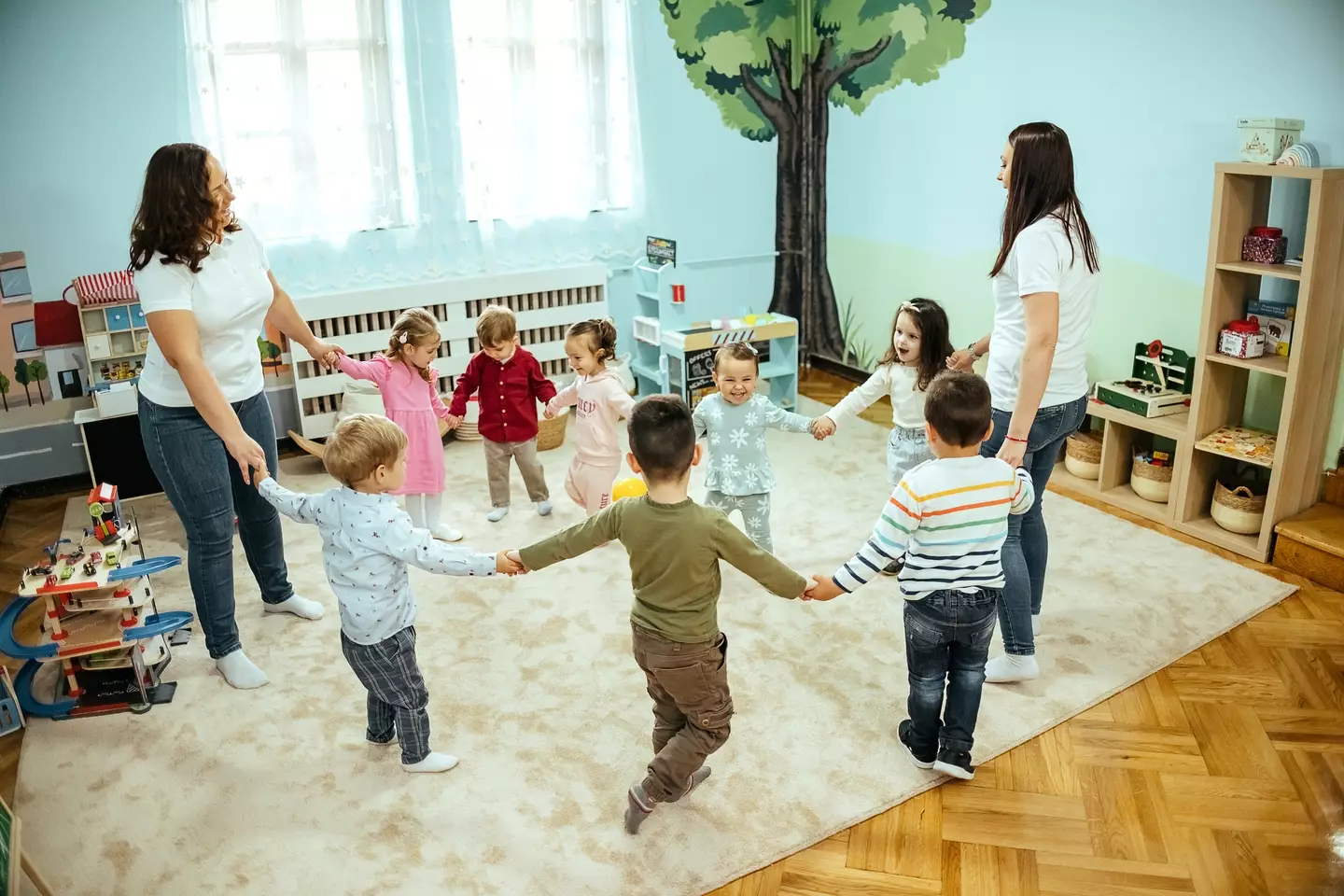
The childhood nursery rhyme Ring a Ring o Roses could have a far darker meaning than you ever thought.
You might have sung it as a child in a circle with a few friends, going around and around until you 'all fall down' - sound familiar?
If you need a reminder, this is how it goes: "Ring-a-ring o' roses / A pocket full of posies / A-tishoo! A-tishoo! /We all fall down!"
It's a childhood classic that has been sung by thousands of kids across the world, but it turns out that the meaning behind it is actually very dark.
Advert
In recent times, nurseries up and down the country have been teaching the song, all while knowing what it could really mean.

Modern interpretations of the catchy tune suggests that the popular nursery rhyme has often been associated with the Great Plague, which happened in England in 1665 to 1666.
It is believed that over 100,000 Brits died during that period, as London lost about 15 percent of its entire population.
So when you have five-year-olds all falling down one by one in a circle, well, it's referring to people dropping dead.
Cheery thought, right?
Although the lyrics have changed over the years, it seems there might be a good reason why we still sing them in schools.
Talking to Today.com, Seth Lerer, dean of arts and humanities at the University California, shed some light on the matter.
He said: "It is a way of completing the world through rhyme.
"When we sing [them], we're participating in something that bonds parent and child.

And it seems as though its not just this kids tune that has a distressing meaning.
He added: "A lot of children's literature has a very dark origin.
“Nursery rhymes are part of long-standing traditions of parody and a popular political resistance to high culture and royalty.”
Music historian Jeremy Barlow, also spoke about the controversy with the BBC.
He said: "The innocent tunes do draw attention away from what's going on in the rhyme; for example the drowned cat in 'Ding dong bell', or the grisly end of the frog and mouse in 'A frog he would a-wooing go'.
"Some of the shorter rhymes, particularly those with nonsense or repetitive words, attract small children even without the tunes.
“They like the sound and rhythm of the words; of course the tune enhances that attraction, so that the words and the tune then become inseparable."
